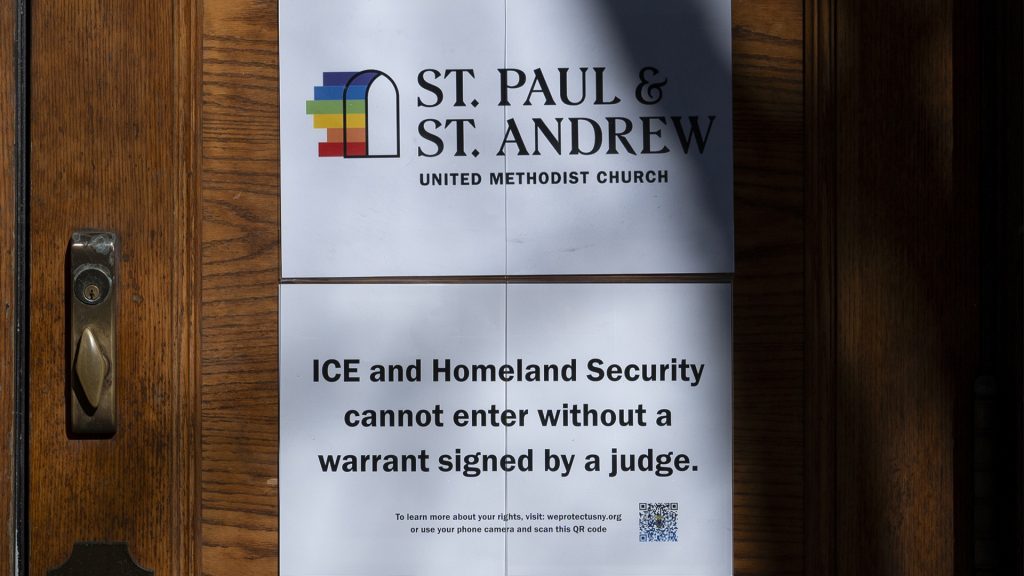Federal judge denies request to block ICE operations at houses of worship
Ella Greene April 12, 2025 0
- A federal judge ruled in favor of the Trump administration, declining to block immigration enforcement at houses of worship. Twenty-seven Jewish and Christian faith groups sought to stop ICE operations after DHS ended its “sensitive locations” policy in January.
- While the organizations argued that enforcement harms religious practice and violates First Amendment rights, Judge Dabney Friedrich ruled the groups failed to show a credible threat.
- In a related case, a Maryland judge granted limited protections to some Quaker groups but did not extend them broadly.
Full Story
Twenty-seven religious organizations rooted in Jewish and Christian traditions, representing millions of Americans, sought injunctive relief to stop Immigration and Customs Enforcement (ICE) operations at their places of worship. The request followed the Department of Homeland Security’s January decision to rescind its “sensitive locations” policy.
That policy had previously blocked immigration enforcement actions at locations such as churches, mosques, synagogues and schools. Its removal now permits federal immigration officers to conduct enforcement at those sites.
Impact on ministry and congregation attendance
The organizations stated that “welcoming and serving the stranger, or immigrant, is… a central precept of their faith practices.” Many provide “social service ministries—including food and clothing pantries, language classes, legal assistance, and job training services—to all persons without regard to [their] documentation or legal status.”
They argued that ICE surveillance and enforcement is “devastating to their religious practice,” claiming it “shatters the consecrated space of sanctuary.” They also reported a significant decline in attendance and rising security-related costs.
First Amendment claims rejected
In addition to practical concerns, the groups claimed that federal actions “near their places of worship burden members’ freedom of religious exercise and right to expressive association” under the First Amendment.
However, U.S. District Judge Dabney Friedrich ruled against the groups in a filing on Friday, April 11.
“At least at this juncture and on this record, the plaintiffs have not made the requisite showing of a ‘credible threat’ of enforcement,” Friedrich wrote. “Nor does the present record show that places of worship are being singled out as special targets.”
Legal response and partial injunction elsewhere
Kelsi Corkran, a lawyer representing the religious groups, issued a statement following the ruling:
“We are currently reviewing the decision and are assessing our options. We remain gravely concerned about the impacts of this policy and are committed to protecting foundational rights enshrined in the First Amendment and the Religious Freedom Restoration Act.”
In a related case, a federal judge in Maryland ruled in favor of mostly Quaker organizations, temporarily blocking ICE raids at their places of worship. However, the judge declined to expand the injunction to cover all religious institutions nationwide.
Related Stories
Ella Rae Greene, Editor In Chief
Ella Greene
Ella and the staff at Clear Media Project (CMP) curate these articles.
Unless otherwise noted CMP does not write these articles.
The views, thoughts, and opinions expressed in the articles published on this blog belong solely to the original authors and do not necessarily reflect the views of the blog owner. The blog owner does not claim ownership of the content shared by contributors and is not responsible for any inaccuracies, errors, or omissions.
All rights and credits goes to its rightful owners. No Copyright Infringement is intended. If you believe any content infringes on your rights, please contact us for review and potential removal.





